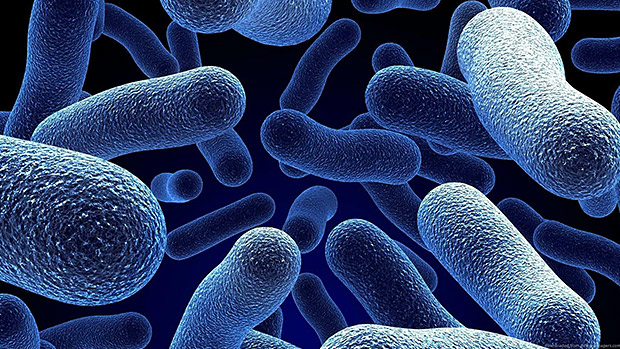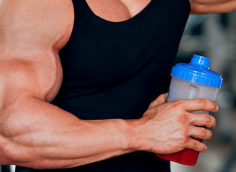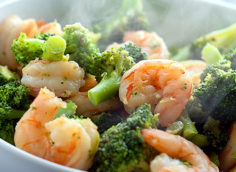In the beginning there were probiotics – foods that contain bacteria that are thought to have beneficial effects on the human body. They were implicated in helping us digest foods, increasing nitrogen retention, controlling our mood and body fat levels, and even increasing the size of testicles (at least in mice).
Scientists began isolating these healthful bacteria in the hope that we could scoop millions of them up into capsules and put them on drugstore shelves, where they'd patiently wait for some person with grumbly bowels to buy them up and give them a new home in their gut.
But for some reason, the bacteria we ingested usually didn't take. They'd either die or take the next poop train out of intestinal Dodge. After a while, scientists figured out that unleashing a bunch of bacteria in our gut wasn't much different than filling a barn with a bunch of farm animals and then leaving them to fend for themselves.
In other words, the farm animals need to be fed, and so do any farm animals let loose in our guts.
The Care and Feeding of Wee Little Beasties
Figuring out what foods help cultivate bacteria became the science of prebiotics. From it, people learned to chomp down on vegetable fibers from woody vegetables and grains so they could grow enormous colonies of good bacteria that would earn them a blue ribbon at the bacterial 4H club.
People also began eating foods that combined prebiotics with probiotics, simultaneously supplying the gut with healthful bacteria and food to feed them with. These combined foods are known as "synbiotics," of which foods like sauerkraut and kimchi are examples.
But lately, food scientists have taken their research a step further by asking what exactly is it about these bacteria that benefit humans?
The answer was found in the metabolic byproducts of these bacteria. That's right, the stuff that bacteria leave in their tiny toilets is the stuff that's having all these beneficial effects on humans and they're collectively known as postbiotics.
By ingesting postbiotics instead of probiotics or even prebiotics, we wouldn't, at least theoretically, have to worry about whether or not bacteria got a foothold in our guts and started growing.
Instead, we could just ingest these probiotics themselves and reap all the supposed benefits of the actual bacteria without having to worry about whether or not they thrived in our guts.
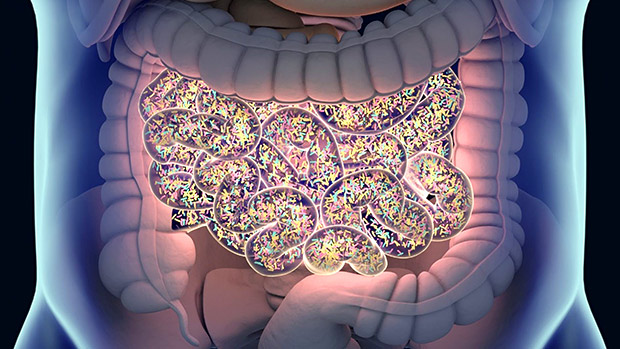
What Are These Bacterial Waste Products Good For?
Postbiotics, as a class, are thought to have the following beneficial effects on humans:
- They fight the growth of harmful pathogens (better gut health in general)
- They reduce inflammation
- They lower blood sugar
- They lower blood pressure
- They treat IBS or leaky gut syndrome
- They reduce oxidative stress
- They foster the growth of good bacteria
There are no doubt plenty of specific postbiotic end products, but the science is still in its infancy and there's lots of exploring to be done. However, we're currently aware of at least a few postbiotic end products that influence human health:
- Short-chain fatty acids: End products like acetic acid and butyric acid that help modulate blood sugar levels.
- Indole: This chemical is largely responsible for the characteristic smell of feces, but it's recently been found to help animals retain a youthful gene expression, theoretically leading to extended life spans.
- Hydrogen peroxide: Production of this well-known chemical can thwart the rise of salmonella and other pathogenic bacterial bad guys.
- Muramyl peptide: This protein can help regulate human sleep.
- p40: This protein is a key driver of cell-mediated immunity.
- Nutrients: Bacteria produce several B vitamins, vitamin K, and even some amino acids.
Sources of Postbiotics
There are currently a number of postbiotic supplements available, but I don't think they've quite got it nailed down yet as to which ones, in what amounts, and in what combinations, are best for human health.
The current best option is to increase the production of postbiotics by including some of the foods listed below in your diet. That'll allow your native bacteria to produce more postbiotics than they might ordinarily:
- Apple cider vinegar
- Butyrate (through eating butter and cheese)
- Spirulina (yeah, that algae stuff we all used to laugh at)
- Grape pomace (the solid remains of grapes, olives, or other fruit; stuff like pulp and skins)
- Mushrooms (specifically, the mycelium they're made of)
There's also some overlap between probiotic and postbiotic foods in that you can increase the production of the latter by eating more of the former, things like the following traditional probiotic foods:
- Kefir
- Pickled vegetables
- Sauerkraut
- Kombucha
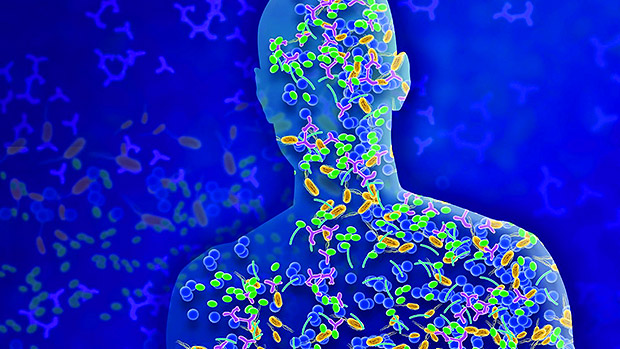
Take-Home Points
- Despite these revelations about postbiotics, pre and probiotics are by no means a waste of time. It's conceivable, though, that there might come a point when we don't have to agonize about them so much. For the time being, continue to eat your prebiotic fibers and your probiotic fermented foods.
- Do, however, pay some attention to postbiotics and try to include at least one or two of the postbiotic foods listed above in your daily diet.
- Realize that while our knowledge of the microbiome is still murky, it's hugely important because everything we know about nutrition is currently being reevaluated through the pre, pro, and postbiotic prism.
Related: The Scary Truth About Probiotics
Related: Balance Gut Bacteria. Get Leaner. Get Happier
Sources
- Aguilar-Toala, J.E. et al. "Postbiotics: An evolving term within the functional foods field." Trends in Food Science & Technology 75 March 2018.
- Robert Sonowal, Alyson Swimm, Anusmita Sahoo, Liping Luo, Yohei Matsunaga, Ziqi Wu, Jui A. Bhingarde, Elizabeth A. Ejzak, Ayush Ranawade, Hiroshi Qadota, Domonica N. Powell, Christopher T. Capaldo, Jonathan M. Flacker, Rhienallt M. Jones, Guy M. Benian, and Daniel Kalman, " Indoles from commensal bacteria extend healthspan," PNAS September 5, 2017 114 (36) E7506-E7515; first published August 21, 2017.
- Tsilingiri K, Rescigno M. "Postbiotics: what else?" Benef Microbes. 2013 Mar 1;4(1):101-7. doi: 10.3920/BM2012.0046.

